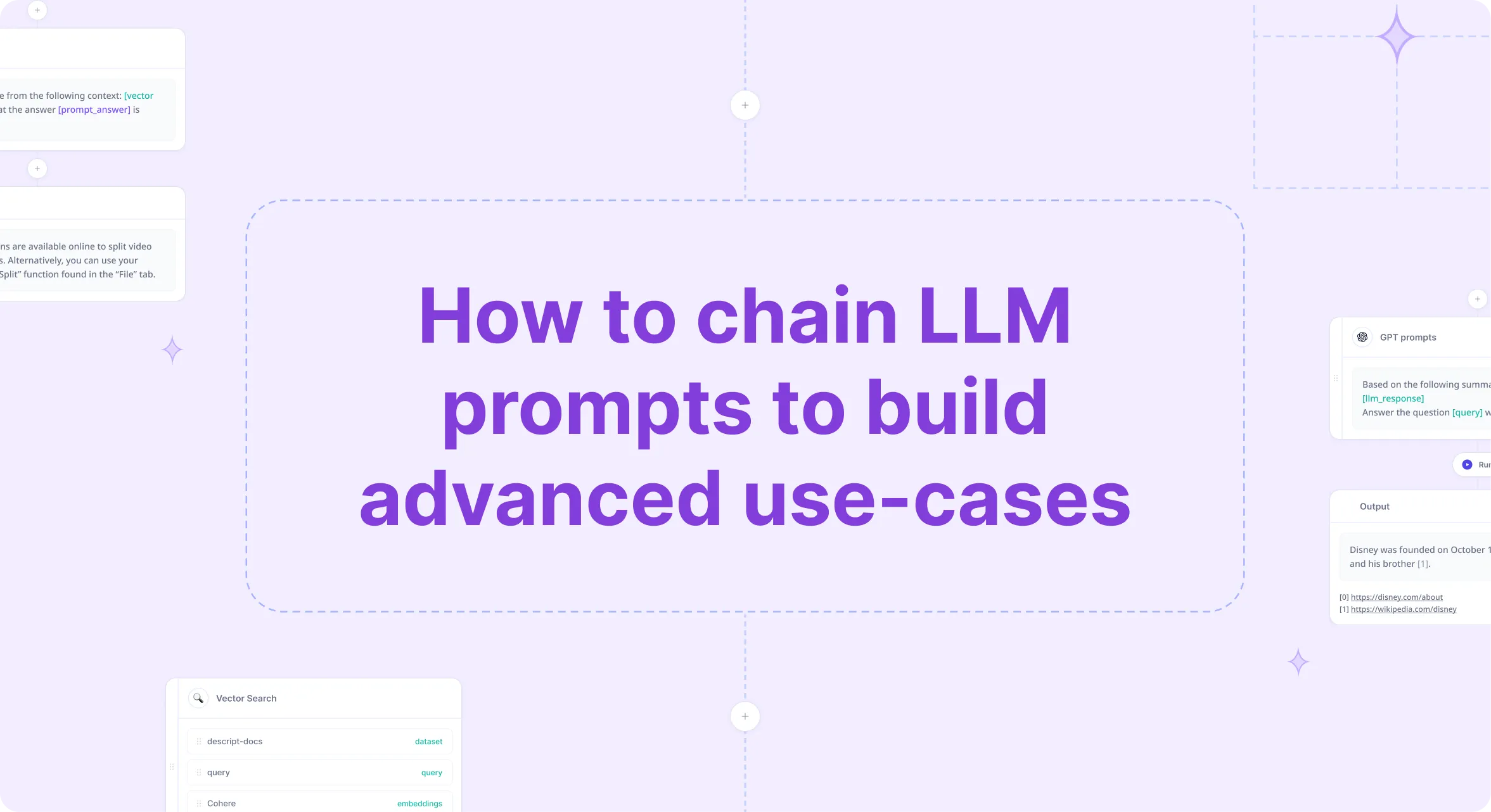
LLMs like GPT are powerful language models that can be used to complete tasks, but they are not as effective in a single prompt as they are when used in a chain. By chaining together LLM prompts, you can build advanced use-cases and achieve better results.
One technique that exemplifies how LLMs can be more powerful is the "Chain of Thought" method. This involves breaking down a complex task into smaller chunks, and using LLM prompts to reason through each step. For example, if you want to plan a trip, you can use a series of LLM prompts to determine the best destination, transportation, accommodation, and activities. By chaining these prompts together, you can create a comprehensive plan for your trip.
Another way to use LLM prompts in a chain is to combine multiple hyper-specific prompts to achieve better results. For example, instead of using one large prompt to write an essay, you can break it down into smaller prompts for each paragraph or topic. This allows you to focus on specific aspects of the essay and get more accurate results.
Chaining together LLM prompts is a powerful technique for building advanced use-cases. By breaking down complex tasks into smaller steps and using hyper-specific prompts, you can achieve better results and make LLMs reason through problems and take actions.
This is particularly useful when wanting to build product features with AI. It allows for going beyond the obvious use-cases for LLMs and focus on features and functionality that would otherwise either be out of reach or require very large amounts of resources to achieve. However, chaining doesn’t just end with multiple prompts - in fact combining it with other transformations and data can lead to incredibly powerful results. A common example of this is using data retrieval and LLMs to build a question-and-answering solution on a specific knowledge base. You can try this yourself with our template.
There are many other examples of chains like this - for example, Bing Chat will search for results based on your query, use an LLM to summarise them based on your question and insert those summaries into another prompt that can then answer the question. You can try this yourself with our template.
Relevance AI makes it easy to build and deploy chains to power your next AI feature.

















